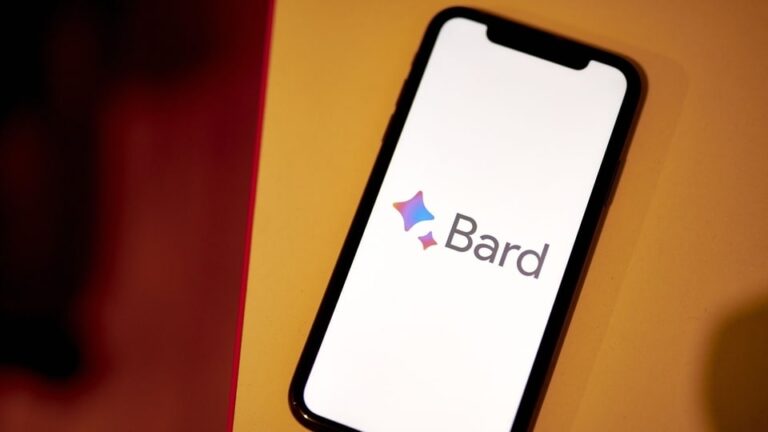Rich Dad, Poor Dad is a bestselling personal finance book written by Robert Kiyosaki. The book emphasizes the importance of financial literacy and provides valuable insights into building wealth and achieving financial freedom. It has become a popular resource for individuals seeking to improve their financial knowledge and take control of their financial future.
The importance of financial literacy in Rich Dad, Poor Dad
Financial literacy refers to the knowledge and understanding of financial concepts and principles that are necessary to make informed decisions about money. In Rich Dad, Poor Dad, Kiyosaki emphasizes the importance of financial literacy as a key factor in achieving financial success. He argues that many people struggle financially because they lack the necessary knowledge and skills to effectively manage their money.
Kiyosaki believes that financial education should be a priority for everyone, regardless of their income level or background. He argues that by acquiring financial literacy, individuals can make better decisions about their money, invest wisely, and ultimately build wealth. In Rich Dad, Poor Dad, Kiyosaki shares his own experiences and lessons learned from his “rich dad” and “poor dad” to illustrate the power of financial education.
The impact of financial education on wealth creation
Financial education can have a significant impact on wealth creation. By understanding how money works and learning how to make it work for you, individuals can take control of their finances and build wealth over time. Many successful individuals attribute their success to their financial education.
For example, Warren Buffett, one of the world’s most successful investors, has often emphasized the importance of financial education in his own success. He has stated that he spends a significant amount of time reading and learning about finance and investing, which has helped him make informed decisions and achieve impressive returns on his investments.
Similarly, Mark Cuban, billionaire entrepreneur and owner of the Dallas Mavericks basketball team, has also stressed the importance of financial education. He believes that understanding the basics of finance and investing is crucial for anyone who wants to achieve financial success.
Understanding the difference between assets and liabilities
| Concept | Definition |
|---|---|
| Asset | An item of value that is owned and can be converted into cash |
| Liability | An obligation to pay a debt or fulfill a contract |
| Examples of assets | Cash, investments, real estate, vehicles, equipment, inventory |
| Examples of liabilities | Mortgages, loans, credit card debt, accounts payable, taxes owed |
| Importance of understanding assets and liabilities | Helps individuals and businesses make informed financial decisions, manage debt, and plan for the future |
One of the key concepts in Rich Dad, Poor Dad is the difference between assets and liabilities. Kiyosaki defines assets as things that put money in your pocket, such as real estate, stocks, and businesses. On the other hand, liabilities are things that take money out of your pocket, such as mortgages, car loans, and credit card debt.
Kiyosaki argues that many people mistakenly consider their liabilities as assets. For example, a house that is mortgaged may be seen as an asset because it has value, but in reality, it is a liability because it requires ongoing expenses such as mortgage payments, property taxes, and maintenance costs.
By understanding the difference between assets and liabilities, individuals can make better financial decisions and focus on acquiring assets that generate income and increase in value over time. This is a key principle in building wealth according to Rich Dad, Poor Dad.
The role of passive income in achieving financial freedom
Passive income refers to income that is earned with little or no effort on the part of the recipient. It is often generated from investments or business ventures that require minimal ongoing involvement. Passive income plays a crucial role in achieving financial freedom because it allows individuals to earn money without having to trade their time for it.
In Rich Dad, Poor Dad, Kiyosaki emphasizes the importance of passive income as a means to achieve financial freedom. He argues that relying solely on earned income from a job is not enough to build wealth and achieve financial independence. Instead, individuals should focus on building multiple streams of passive income that can provide a steady cash flow and grow over time.
Examples of passive income streams include rental properties, dividend-paying stocks, royalties from intellectual property, and online businesses. By investing in assets that generate passive income, individuals can gradually reduce their reliance on earned income and work towards financial freedom.
Building a strong financial foundation through budgeting and saving

Budgeting and saving are essential components of building a strong financial foundation. In Rich Dad, Poor Dad, Kiyosaki emphasizes the importance of living below your means and saving a portion of your income. He argues that by doing so, individuals can accumulate capital that can be used to invest in income-generating assets.
Effective budgeting involves tracking your income and expenses, setting financial goals, and making conscious decisions about how you spend your money. It requires discipline and self-control to prioritize saving and avoid unnecessary expenses.
Saving is the act of setting aside a portion of your income for future use. It is an important habit to develop as it allows you to build an emergency fund, save for major expenses or investments, and have a financial cushion in case of unexpected events.
The dangers of consumer debt and how to avoid it
Consumer debt refers to debt incurred for personal or household purposes, such as credit card debt, car loans, or personal loans. It is often associated with high interest rates and can quickly accumulate if not managed properly. In Rich Dad, Poor Dad, Kiyosaki warns against the dangers of consumer debt and encourages individuals to avoid it whenever possible.
Consumer debt can be a major obstacle to building wealth as it requires individuals to make regular payments towards interest charges instead of investing or saving their money. It can also lead to a cycle of debt where individuals find themselves borrowing more to pay off existing debts.
To avoid consumer debt, Kiyosaki suggests living below your means, avoiding unnecessary expenses, and prioritizing saving and investing over spending. He also advises individuals to be cautious when using credit cards and to pay off their balances in full each month to avoid accumulating high-interest debt.
The power of investing in real estate and other assets
Investing in real estate and other assets is a powerful wealth-building strategy. In Rich Dad, Poor Dad, Kiyosaki highlights the benefits of investing in real estate as a means to generate passive income and build long-term wealth.
Real estate has the potential to provide both cash flow through rental income and appreciation in value over time. By acquiring income-generating properties, individuals can earn passive income that can be reinvested or used to cover expenses.
In addition to real estate, Kiyosaki also emphasizes the importance of investing in other assets such as stocks, bonds, and businesses. Diversifying your investment portfolio can help spread risk and increase the potential for returns.
The benefits of entrepreneurship and starting your own business
Entrepreneurship and starting your own business offer numerous benefits when it comes to building wealth. In Rich Dad, Poor Dad, Kiyosaki encourages individuals to consider entrepreneurship as a means to achieve financial independence.
Starting your own business allows you to have control over your income and financial destiny. It provides the opportunity to create value, solve problems, and generate profits. It also allows you to leverage your skills, knowledge, and passion to build a successful venture.
Many successful entrepreneurs attribute their wealth and success to their entrepreneurial endeavors. For example, Elon Musk, founder of Tesla and SpaceX, has built multiple successful businesses that have made him one of the richest individuals in the world.
The importance of mindset and attitude towards money
Mindset and attitude towards money play a crucial role in achieving financial success. In Rich Dad, Poor Dad, Kiyosaki emphasizes the importance of developing a positive mindset and attitude towards money.
Having a positive mindset involves believing in your ability to achieve financial success, being open to learning and growing, and having a proactive approach towards managing your finances. It also involves adopting a long-term perspective and being willing to take calculated risks.
Kiyosaki also stresses the importance of financial education in shaping your mindset and attitude towards money. By learning about finance and investing, individuals can gain the knowledge and confidence to make informed decisions and take control of their financial future.
Creating a financial plan for long-term success
Creating a financial plan is essential for long-term success. In Rich Dad, Poor Dad, Kiyosaki emphasizes the importance of setting financial goals and developing a plan to achieve them.
A financial plan involves identifying your financial goals, assessing your current financial situation, and developing strategies to achieve those goals. It includes budgeting, saving, investing, and managing debt effectively.
To create a financial plan, it is important to set specific, measurable, achievable, relevant, and time-bound (SMART) goals. This allows you to track your progress and make adjustments as needed. It is also important to regularly review and update your financial plan to ensure that it remains aligned with your goals and circumstances.
In conclusion, Rich Dad, Poor Dad emphasizes the importance of financial literacy and provides valuable insights into building wealth and achieving financial freedom. The book highlights the impact of financial education on wealth creation and emphasizes the difference between assets and liabilities.
It also emphasizes the role of passive income in achieving financial freedom and encourages individuals to build a strong financial foundation through budgeting and saving. The book warns against the dangers of consumer debt and highlights the power of investing in real estate and other assets.
Furthermore, Rich Dad, Poor Dad highlights the benefits of entrepreneurship and starting your own business. It stresses the importance of mindset and attitude towards money and encourages individuals to create a financial plan for long-term success.
Overall, Rich Dad, Poor Dad serves as a valuable resource for individuals seeking to improve their financial knowledge and take control of their financial future. By implementing the principles outlined in the book, individuals can work towards achieving financial success and building long-term wealth.
FAQs
What is the book “Rich Dad, Poor Dad” about?
The book “Rich Dad, Poor Dad” is a personal finance book written by Robert Kiyosaki. It tells the story of Kiyosaki’s two fathers, one who was his biological father (poor dad) and the other who was his best friend’s father (rich dad), and the lessons he learned from both of them about money and investing.
What is the main lesson in the book “Rich Dad, Poor Dad”?
The main lesson in the book “Rich Dad, Poor Dad” is that in order to become financially successful, one must learn to think like an investor and not just an employee. Kiyosaki emphasizes the importance of financial education and taking calculated risks in order to build wealth.
What are some other lessons in the book “Rich Dad, Poor Dad”?
Other lessons in the book “Rich Dad, Poor Dad” include the importance of owning assets that generate income, the difference between good debt and bad debt, and the need to constantly increase one’s financial intelligence.
Has the book “Rich Dad, Poor Dad” been successful?
Yes, the book “Rich Dad, Poor Dad” has been very successful. It has sold over 32 million copies worldwide and has been translated into 51 languages. It is also considered one of the most influential personal finance books of all time.
What criticisms has the book “Rich Dad, Poor Dad” received?
The book “Rich Dad, Poor Dad” has received criticism for its simplistic approach to investing and its lack of concrete advice. Some critics have also accused Kiyosaki of promoting get-rich-quick schemes and taking advantage of vulnerable readers.




